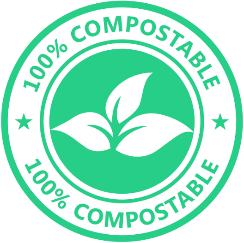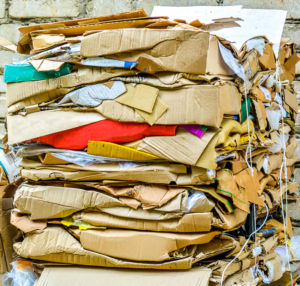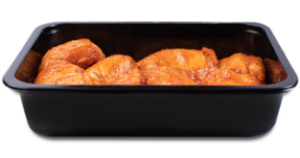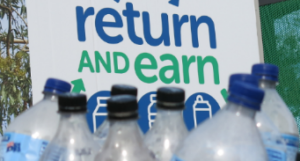FGC established a Sustainability Committee in July 2019. It consists of seven sub-committees that tackle all issues of sustainability as they relate to the food and grocery sector. About 90 FGC members are involved in these sub-committees. The Sustainability Committee is chaired by Kimberly-Clark NZ’s General Manager Cameron Scott, and has sustainability expert Lyn Mayes, of Mad World, as a special adviser.
The sub-committees now have broad representation from Ministry for the Environment, The Packaging Forum, Retail NZ, Sustainable Business Network, Plastics NZ and the Association of Metal Recyclers.
The committee to date has:
- established and published a database of plastic consumption by resin type
- taken an industry leadership position on the introduction of compostable products for use in households
- encouraged sustainable packaging design through education and support for members
- led the discussion around labelling with the introduction of an Australasian Recycling Label Implementation Working Group.
- participated in a global Extended Producer Responsibility Working Group with expertise from Asia, Australia, Canada, Ireland, USA and UK.
The sub-committees are:
Compostable Plastic Products
There is no officially adopted standard for compostable products in New Zealand for commercial composting or home composting. Many products are certified to the associated European, Australian or ISO standards but there is no official standard or label for companies to achieve/use on their products. This sub-committee recommends the adoption of an existing international standard and their preference would be for adoption of the ISO standard. FGC continues to advise members not to introduce compostable plastic packaging and products for now, and has identified the pathway towards a solution. In summary there are three current scenarios:
- compostable products collected in a closed-loop, or specific items, can be taken to a commercial compost facility
- commercially compostable products sold at retail outlets to be consumed at home go to landfill, as do home compostable products if there is no home compost bin
- home compostable plastic products can be composted at home but take up to 12 months to biodegrade.
FGC says if compostable products consumed at home are to be composted in future, there needs to be investment in a kerbside collection system for clearly identified compostable plastic. There is no real solution for home compostable products at scale in most home compost environments. FGC is continuing to work with the Government on this.
Click here for an infographic of the current household model
Labelling
This sub-committee focuses on the implementation of the Australasian Recycling Label in New Zealand. With greater divergence in what materials are collected at kerbside in both countries, the purpose of this group is to ensure this tool represents the New Zealand market. This working group includes representatives from across FGC, Retail NZ, and The Packaging Forum. Chair: Jennifer Evans, Mondelez.
Metal Packaging
The scope for this sub-committee is all consumer metal packaging and components with the desired outcome to maximise kerbside collection. As a priority, it will provide input to the Government’s “Standardisation of kerbside collections” work to seek clarity on the proposals and to advocate that metal packaging, including lids, foil containers and aerosols, should not be excluded. It includes representation from FGC members, supermarkets, the Association of Metal Recyclers, Cosmetics NZ, and the Sustainable Business Network, with input from the Ministry for the Environment and Eunomia Consulting. The group is working on a traffic light system to easily communicate what metal packaging and components are currently being processed and what the future looks like. An important part of this work is understanding why recyclers have asked to exclude caps, lids, aerosols, foil etc. Chair: Pat Brookman, General Manager, IMCD
Paper Packaging
Some 530,000 tonnes of fibre are collected annually across New Zealand, around 45% of which is recycled here. The remainder has been exported but overseas demand has reduced considerably for mixed papers. Fibre processing is at full capacity and it will take significant capital investment to increase onshore capacity. Consumption of paper is also increasing as brands seek alternatives to plastic. This project sets out to identify the grades of paper being used by members and to seek to reduce the gap between imported fibre and the use of recovered fibre. Chair: Elizabeth Hart, Detpak.
Click here for FGC Education pack: Facts about Fibre
Plastic Packaging
This sub-committee aims to influence the FMCG community around best practices for plastic packaging and to stimulate and deliver positive change to achieve circular economy principles. Its goal is that FGC members conduct all required work to maximise positive changes being made away from the use of the most damaging plastic types. Its focus is on used plastic, noting the Government’s plans to address more difficult-to-recycle plastics, including PVC and Polystyrene; plastic recycling – how industry can support improved recovery of plastics; reduce amount of virgin plastic by increasing use of recycled content. Chair: Cameron Scott, Kimberly-Clark NZ.
Container Recovery Scheme
This sub-committee established a fact set of data on beverage containers used by FGC members and provided input on behalf of the FGC and its members to the Government-led CRS Working Group and its Scheme Design Working Group. The sub-committee awaits the Government’s decision as to whether to proceed with a scheme and the consultation process which would take place.






